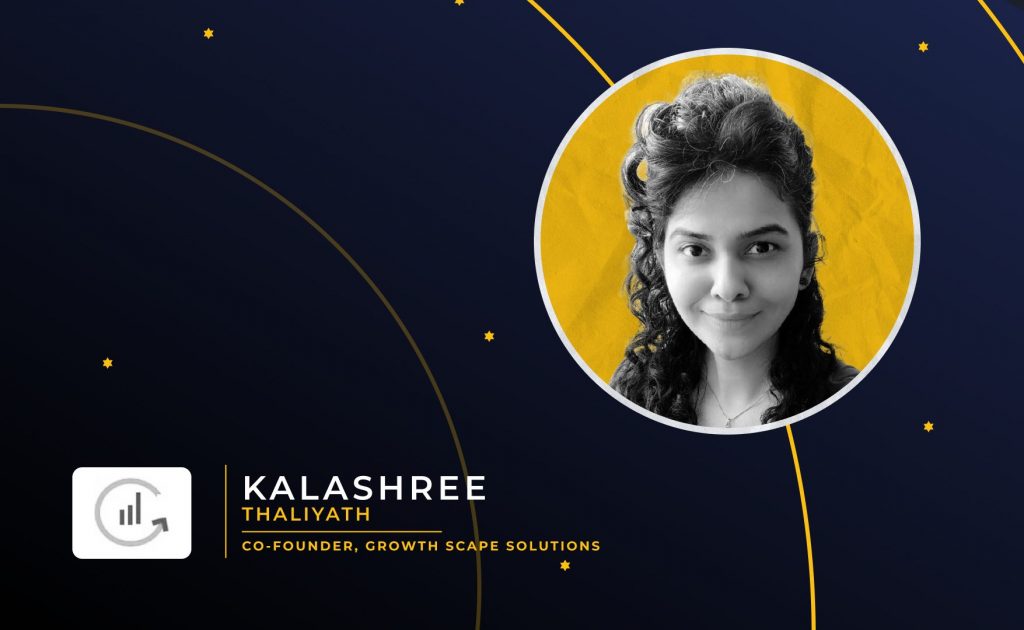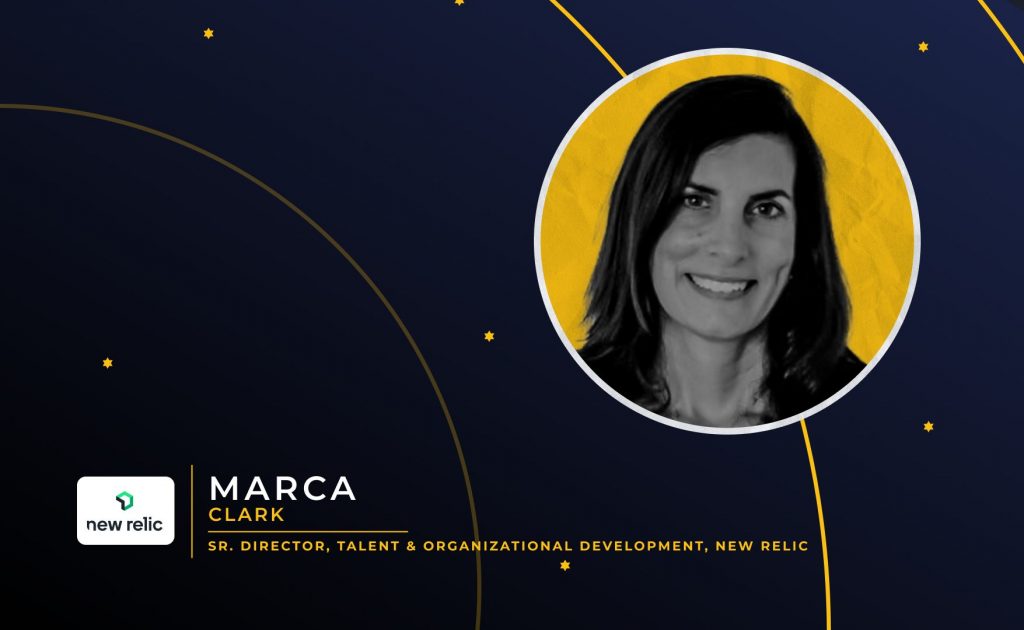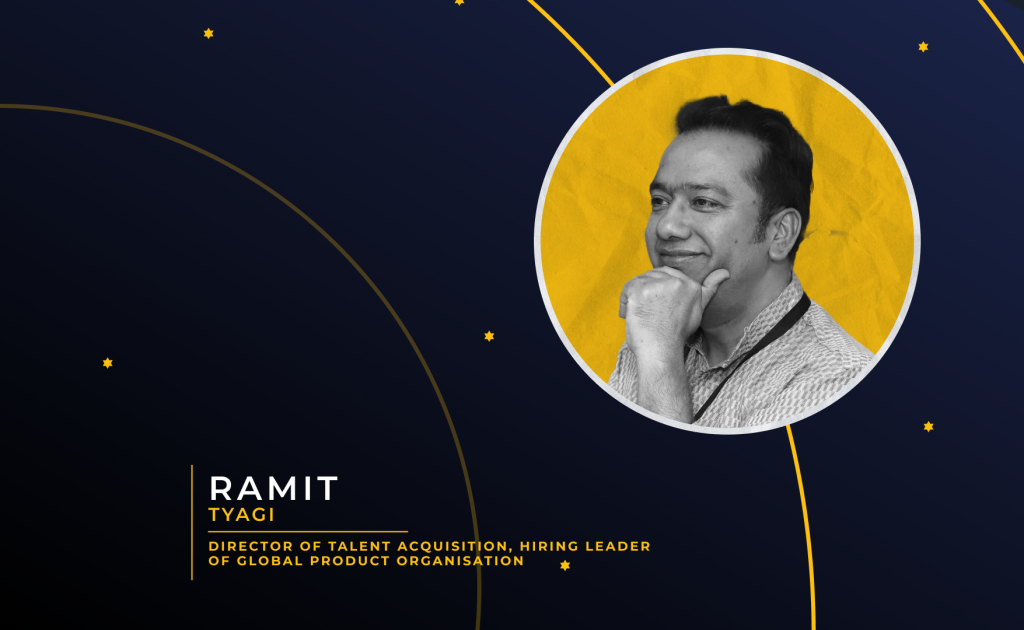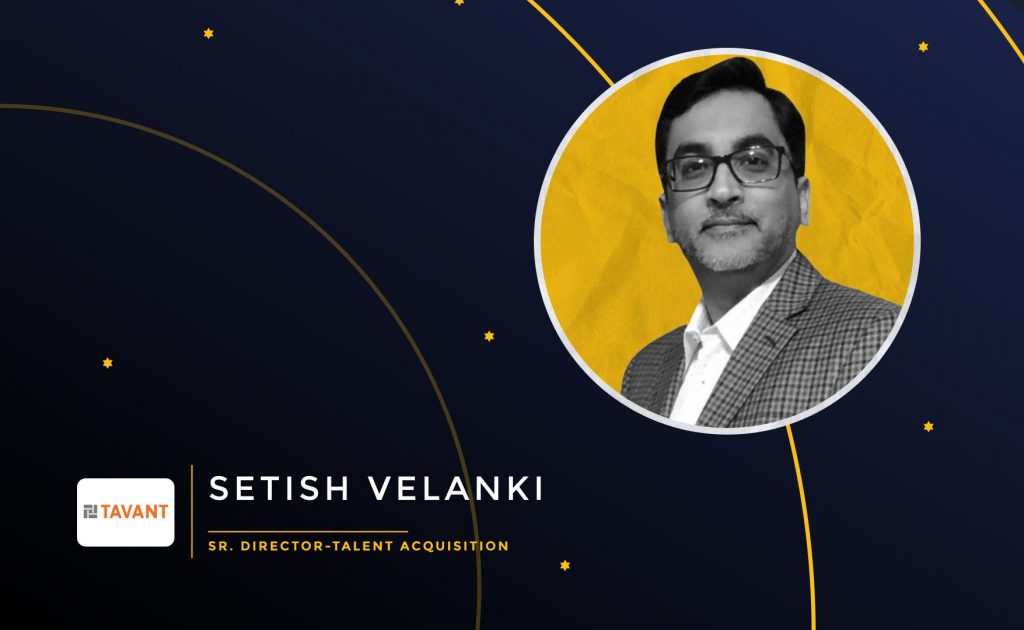Abhimanyu Saxena has been a part of multiple organizations right from Progress Software to Fab.com and is now heading InterviewBit and Scaler as the Co-founder.
When asked about the favorite aspect of his team, Abhimanyu speaks up about how he loves the mission-driven nature of the team and the dedication shown by them.
Abhimanyu firmly believes that it is the skill and the knowledge a person consists of that is relevant instead of titles and degrees when it comes to hiring for a specific position.
There is a massive talent scarcity which has led to obscenely high salaries and compensations.
The problem we are trying to solve is that there is a scarcity of software engineers and data scientists of high caliber and organizations are not able to hire them. organizations have been offering perks such as expensive bikes, cars, and trips to hire people. This is a great problem of talent which we can find more in India and is even evident in Bangalore. There is a scenario now where organizations are claiming there is a very low number of good software engineers whereas there are about 1.6M people who graduate with engineering degrees.
This raises the question of why are startups not able to hire even 10K or 20L out of these 1.6M engineers. Now the root cause here is that the students who are being taught in universities are completely divergent from what skills are actually required. It does not only limit to the domain of technology and is true for most of the domains. Also, the fast-paced technology change has brought about a lot of changes in the teaching criteria. The curriculum updated just decades later shows how the matter being taught to students tends to be outdated. So to tackle this issue we created InterviewBit. This InterviewBit is a platform that is quite commonly used by a lot of software engineers and final-year aspirants who are trying to pass the interviews. Here you get a lot of good-quality content that too for free.
Now the problem with this course is that there are only a limited number of people who complete this course. And when we compare these courses with the ones being taught at the college, well, there are definitely a lot of benefits when we indulge in community-based learning and there’s also peer-to-peer learning. However, for those who cannot dedicate a lot of time to college, this platform becomes a beneficial one.
So what Scalar offers now is a course that can be anywhere from 7 to 14 months. We are also focusing only on two courses one being data science and the other being software engineering as these are the two domains that have the highest job opportunities. What sets this platform apart is the way the curriculum is set. Now, most colleges do not have teachers who have actually done fieldwork and then set the curriculum. However, at InterviewBit, we see that CTOs decide what the curriculum looks like and hence this provides necessary industry skills and knowledge. Another important part is mentorship, where we focus on various skills that need to be developed individually and also guide them through the right path.
I think the integration of technology for better processes is in a way inevitable.
So there is an article titled “The software is eating the world” and it is quite true today in this world. It will be even more relevant a few decades down the line as there will be more involvement of technology in various domains of life. We can also see how technology is changing our day-to-day life. It is now making it easier to order things from various apps and get them delivered to your doorstep. Then there is a business-to-business side that as a company as an executive you need to manage the business processes of a company. It depends on the size of the organization as well.
Where an organization with 5 to 10 employees might need a different tool while a company of size 50 might need more than just a spreadsheet to function. Then there will be an organization with 2000+ employees that might need an even more advanced tool. So the question is not whether you need softwares to run an organization or not. The more important question is which tool is the right fit for your organization. Based on the size of the organization the need for the tool will also change.
When we talk about large organizations there always needs to be a tool that helps to gain insights into what is working and what is not working.
If your hiring needs are such that you need around a hundred people joining in a month, then you might first want to check whether you have a good tool and a good process in place that will help manage the process. Especially when there is a huge organization there is a possibility of not knowing what is the current offer-to-join ratio and what is the selection ratio or maybe how many interviews are being conducted. Unless very detailed data is being tracked about each stage it is impossible to optimize. We might see that the end result is not efficient. Without having data we do not know at which stage is it broken.
Now when it comes to smaller companies the question is not how to track the offer-to-join ratio or the number of interviews being conducted. The major problem will be how will the candidates get to know about our small organization and hence apply for the position. The sourcing of candidates is where the problem arises. So for example organizations like Microsoft or Google will have different problems than smaller size organizations. But any organization which is in its mid to late stage will definitely need to have centralized data to track the details. A good HR tech solution in such cases will definitely help solve the problem.
Two metrics such as an offer-to-joining ratio and how many applications you get organically when you open a role play a very important role in deciding how good your employer brand is.
I think hiring a candidate is almost equal to converting a client. For example, if you look at a B2C brand if the organization doesn’t have the right brand image then no matter how much effort you put into sales and marketing, it is hard to get a good conversion funnel. A similar thing gets applied to a recruiter where no matter how much you focus on trying to reach out to people to apply for a position in your organization if your employer brand is not good, then people won’t notice your organization. This can also be related to an inefficient vehicle where no matter how much fuel you add in, it is eventually not going to work.
If you do not work on your employer’s brand and if people do not see your organization as an aspirational place to work, then there is no way people will apply to the organization. Also the time and effort you add in to build a broader pipeline, the number of interviews you take and the efforts you put in to create a good base for your organization will all go to waste. So yes for an organization, employer branding is a crucial thing to be successful in the market.
We believe that skills take a much higher role than your titles or degrees when a hiring strategy at our organisation is being considered.
Our hiring strategy does vary from team to team and also from level to level. Now for example, if we talk about hiring a software engineer, we have a benefit as we can check who is performing well, especially since we can track those who have enrolled in our courses. So we get access to a wide pool of candidates when hiring software engineers or data scientists. This performance is not just checked at an interview level but also for a period of seven to ten months where we check performance at each stage. We also do not generally consider the colleges from which they have graduated since that can itself lead to a bias, and also because there is absolutely no correlation between the hiring and college names. So we just look at their skills and performance.
The hiring strategies also change when we consider hiring at a leadership level and a junior level. For a leadership level, we will check for their performance at a previous organization and the kind of impact they had in those positions. However, when we are talking about hiring for a junior-level position, we will not focus on the experience instead we focus on the skills that the candidate consists of and whether their attitude and aptitude are the right fit for the role. So at Scaler, we believe that no degree is really required, as long as you’ve got the necessary skills to possess the position.
The name of the university or college is irrelevant in the hiring process. What eventually matters is Knowledge, capability, and skills in the domain they are working.
Age, gender, race, and color are all such variables that do not really matter when we talk about hiring. I’ve seen two types of people so far. One, for example, is a Gen Z who is around 20 years old and is currently leading a team and is creating an impact in the role they are working. They might be generating impact worth millions of dollars every single month. They might be leading teams, they might be conceptualizing products, delivering them to the end, and making sure that the user adoption is good.
At the same time, I have also seen people, so let’s say someone in their mid-40s who have been in an entirely different domain but now have started to learn new age skills. So there are people who invest in upskilling even at that age. Age is supposed to be non-variable when it comes to hiring. It should be what your skills are today.
Most of the larger enterprises have these Returnship programs, they call it. In India, for example, it’s a very common thing that women in tech and leadership are so few because most of the women might take a break in their careers because of maternity or for different reasons. But now if they have again brushed up on their skills and now they are ready to get back to the industry, it should be easy for them. It should not be that they are not getting priority in the hiring process. Just because they might be in their mid-30s, might be out of the industry for a few years. But that doesn’t mean that they shouldn’t be given priority if they have the skills for the role.
When hiring I look at those people who are extremely good at the role like even better than me.
I do not compromise and say that any sort of qualified candidate is alright. No, it is okay to take a bit extra time but finding the right candidate who can fulfill the role at the best level is what I want. And once you get this team of candidates who are really good at what they do you must give them freedom. They should be able to get that autonomy to plan and execute. Apart from that it is also important that the goals are set very unambiguously. If you have told a particular team what are the goals, let them take ownership and run forward to fulfill these goals with their own creative ideas.
The other thing you might want to keep a check on is not micromanaging. If I’m having to micromanage, either I am not managing them well, either I have not set the goals properly for them or I have not hired them well. So micromanagement, in my view, if I am having to do micromanagement, if I smell that something has gone wrong before if things are working great, I should not be needing to do micromanagement.
One thing that I love about my current team is the mission-driven nature of the team.
We are lucky to be working in a domain that has a rather direct impact. So when you are able to make someone much more employable when people get much better jobs the kind that impacts an individual’s life and their families around them, you feel really good. For example, we have people who come from exceptionally poor background families. And when they enroll for these courses they find themselves on a new path than where they were before. In fact, we have also received messages of gratitude mentioning how thankful they are for these courses and the opportunities that they got along with the course. It entirely changes their entire community and everyone is able to see this direct impact of the work they are doing, be it a tech or product team. I think the reason for working in such a field is that they are directly able to see the impact, the ground impact of the work they are doing in someone’s life. And of course, apart from that, the kind of talented density that we have been able to create, like really smart people to work with. I think these are the two fundamental things that I feel very proud of.
We support a hybrid model of working where those people who are not able to perform really well can gain training and those who are already performing really well can continue working from home.
Knowledge workers or those who are working in a creative field such as programmers or could be product managers, may not need to come to the office every day. They can just drop in when it is necessary. At the same time of course, while technology has advanced a lot we can do online calls in absolutely remote work. One thing that I do see missing is the serendipity of creativity, right? So for example, it’s impossible on a zoom call or through online calls that you run into someone at the bottle cooler, exchange ideas, exchanges what you all are working about and then some new ideas get created out of that because how do we create that? Unfortunately, technology hasn’t solved that serendipity yet. So in that context, I think a little bit of offline working does help for more creativity, and for better collaboration.
It also depends from team to team. For example, the policy for the tech team to work from the office can be different than the policy created for the sales team to work from the office. Also, the policy where all of the employees need to work from the office every day can be a bit hard especially considering a city like Bangalore where commute takes up most of the time and hence exhausts people even more.
There is a behavioral shift in society where one can now see major organizations like Google accepting candidates who do not have a degree.
So a few decades back it would have been impossible to land a job if you did not consist of a degree. Some organizations would mention that only candidates belonging to a particular college were allowed to apply for the job. However, now there has been a major shift where organizations have started accepting candidates even without degrees. Even organization such as Google has mentioned this on their website. So I think that is becoming more common.
Another trend that we can see is the role of technology in hiring. Right from proctoring tests to the conduction of interviews, technology has helped speed up the process. The initial filtering by tech also provides a better sense of candidates applying for the job.
Scalar’s success is more aligned with my definition of success. And the real core is creating value in the ecosystem because if you have enough value then the profits and revenue will automatically be a part of your success.
First of all, success can never be achieved overnight. You will need decades of consistent hard work to reach levels of success. However, success at Scalar is more about how we can create an educational system that is on a global level. The focus is on how can we reach Harvard or MIT level. There is also a focus on how can we make such high-quality education available to everyone out there. And then depending on your hard work, you can reach a level of success.


































